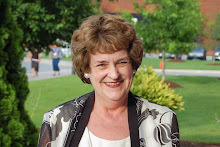Before the intensified attention to 9/11, I had already been feeling the vulnerability of life. Everyone knows in the back of their minds that life is short, that the world is dangerous and unpredictable, that things can dramatically change in a heartbeat. We don’t usually dwell on these realities. By the nature of our work, pastors are acutely aware of these stark truths about life.
Most people have had the experience when the reminders of life’s fragility ganged up in the calendar and the heart. That’s what has been happening to me in the past couple of weeks: the sudden, unexpected death of a dear friend just my age, the news of the recurrence of cancer with another friend, the death of a like-my-mother precious presence in life all within a week. So I didn’t need all the stories of 9/11 to remember that we never know what a day will bring. I don’t need the talk of 9/11 to remember that evil is real and that good people—innocent people—suffer in this fallen world. I don’t need news stories to tell me that life can turn upside-down in a heartbeat. Those realities did not (or end) on September 11, 2001.
Exactly at this point of painful reality, the rich resources of faith makes a difference. The 9/11 experiences of life – those gut-wrenching, life-changing, cut-to-the-core experiences—send us frantically scrambling for a sure foundation. And, no matter what has happened, the dependable, strong, redemptive love of God is always there. “I will fear no evil” we all learned to recite from the beloved 23rd Psalm “for thou art with me.” It’s in the 9/11 times, the true, dependable, unstoppable source of security emerges. We see how much we have trusted in things that will pass away. And, at our best, we put our pain to the good work of establishing/re-establishing an anchor of life that will never fail us or let us down: the love of God.
As with every tragedy, the most important thing is not the shock of what happened. The defining dynamic is what we do with the tragedies that life brings. On September 11 (and every anniversary day of other tragedies), some will be bitter, angry, depressed or crippled with sorrow. I understand. No one should condemn others for the deep emotions of loss. At some point—some life-giving turn—the bigger question emerges: What am I going to do with this unspeakable tragedy that has happened? That’s the defining question. Will the tragedy define life? Or will the tragedy of life turn us to the unfailing resources of God?
In a devotional book I have been reading, Trusting God for Everything: Psalm 23 by Jan Johnson, she points out that the verse I have always loved “Yea, though I walk through the valley of the shadow of death…” (Psalm 23:4) literally means “Yea though I walk through the valley of deepest darkness…” That includes all of life’s bitterest experiences. Followed by the great affirmation I invite us all to make: I will fear no evil; for thou art with me. Evil is present in the world, but it is not feared. What a great witness our faith has to offer to our anxious, insecure, dangerous world!
Looking back across the last 10 years, I am looking at life with this question: How has 9/11 (our national tragedy or your personal 9/11 experiences) shaped me? Am I more cynical, bitter, angry, insecure, resentful, closed to others or God? Or am more trusting in God, more loving, more forgiving, more merciful, more peaceful and committed to living in peace with others? Does tragedy in life shape me or, by God’s grace, am I transformed?
Long ago, I made it a daily practice to read Romans 12. This weekend, as our nation walks through the 10th anniversary of 9/11, I am adding a daily text-- the 23rd Psalm-- at the beginning and the close of the day. The only way through the valley of deepest darknesses...the only way to fear no evil is through the security greater than life--the security of God's dependable love.
Friday, September 9, 2011
Subscribe to:
Post Comments (Atom)


No comments:
Post a Comment